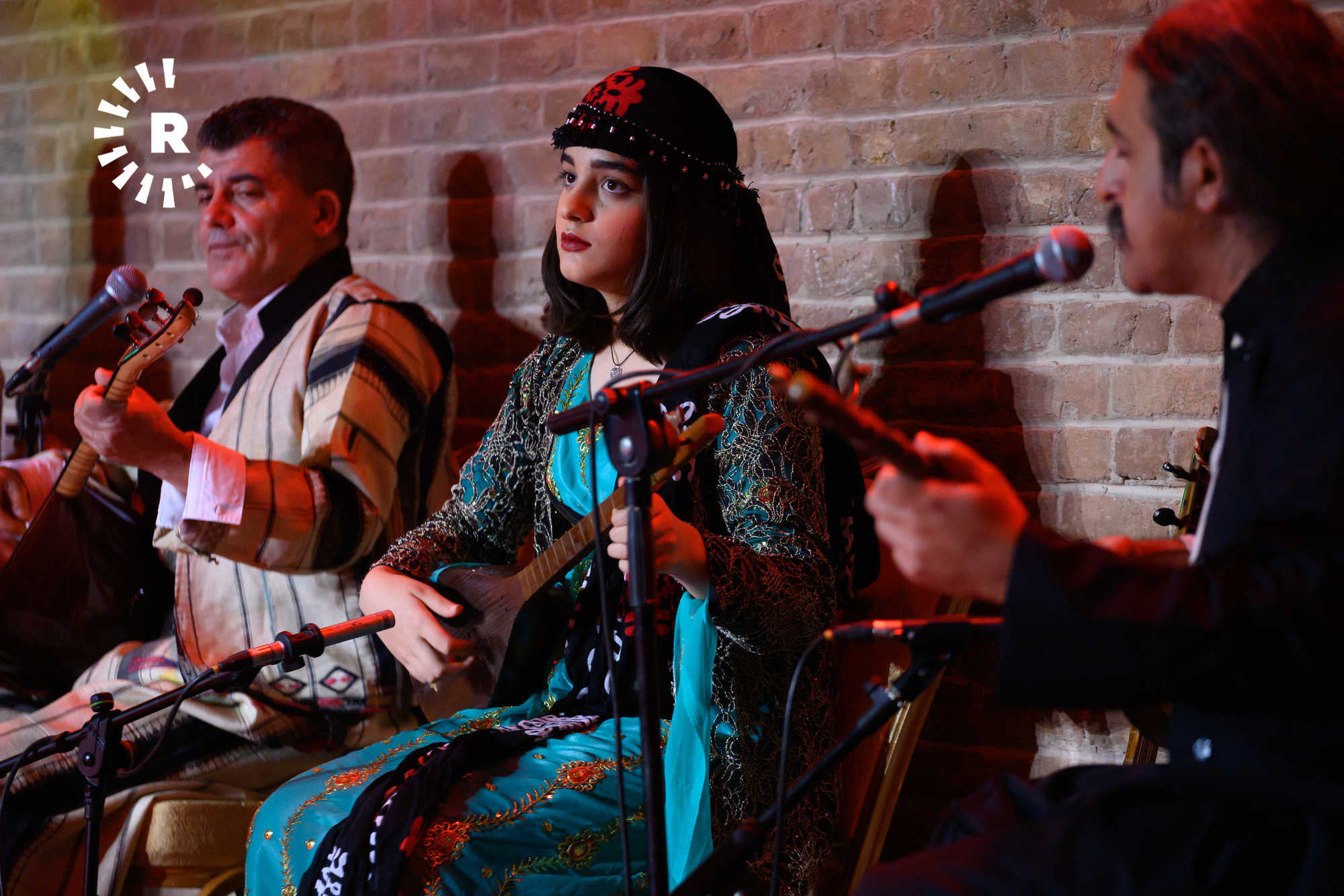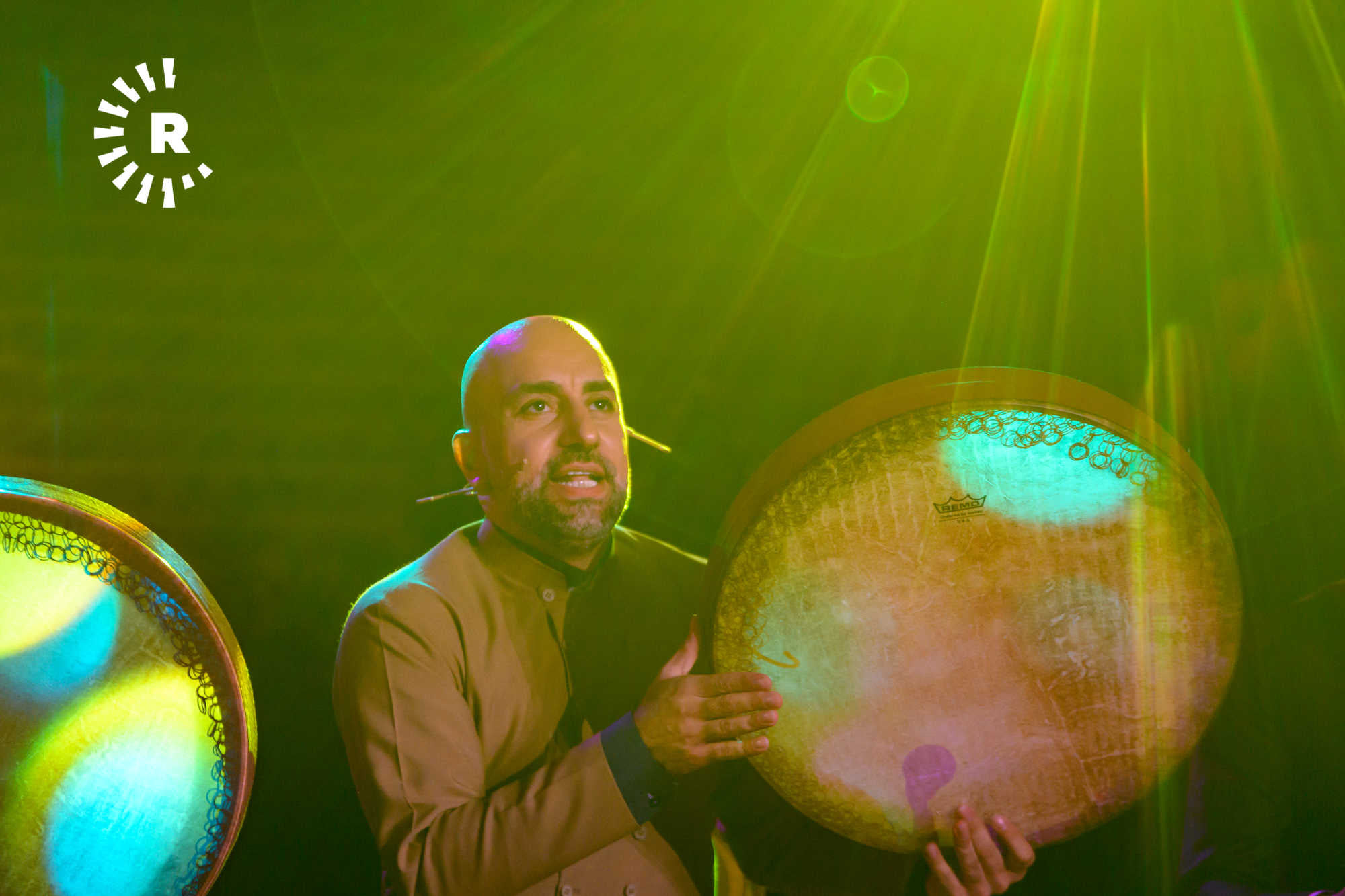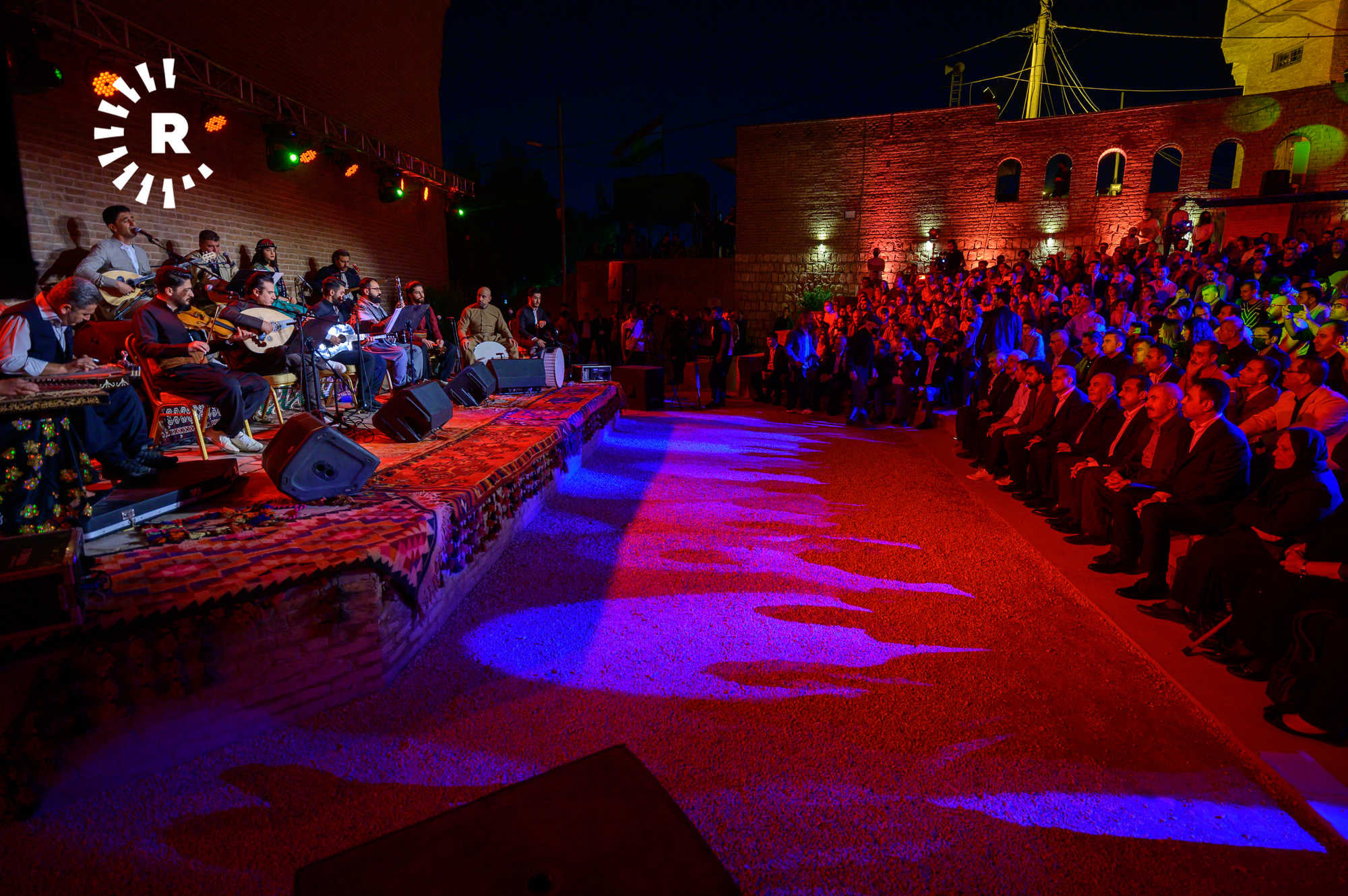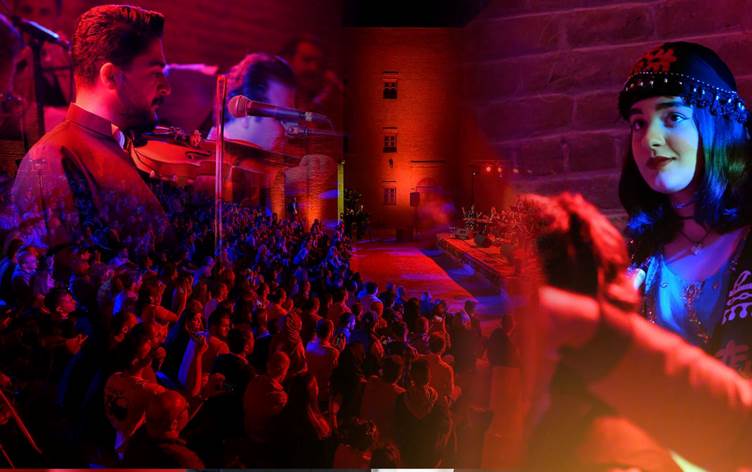ERBIL, Kurdistan Region - Music and songs in multiple Kurdish dialects soared from the historic citadel of Erbil on Thursday evening as musicians put on a memorable concert that lingered in the soul of attendees, leaving them in awe of the beauty of a rhythm stemming from all four parts of greater Kurdistan.
Fourteen singers and musicians from northeast Syria (Rojava), northwestern Iran (Rojhelat), southeastern Turkey (Bakur), and the Kurdistan Region (Bashur) dynamically collaborated to perform at the inauguration of Zahawy Music House in the capital of the Kurdistan Region.

The performance was attended by Erbil Governor Omed Khoshnaw, Mayor Nabaz Abdulhamid, and scores of local and foreign fans.
“Zahawy Music House will be a musical house holding a concert every month and it will conduct workshops and masterclasses at the same time,” organizer and daf (drum) player Hazhar Zahawi told Rudaw’s Halabja Sadoon.
Based in Erbil, the music house will start its activities early next year.
It will host local and international musicians, according to Zahawi.

Music is a central part of Kurdish culture. Ranging from love stories to historical tales, the songs are orally passed down from one generation to another. Rojhelat is considered the cultural center for Kurdish music.
Originally from Rojhelat, Zahawi has been playing the daf for over twenty years after it was passed on to him through heritage and family. The daf is a classical frame drum musical instrument used in the Middle East, Iran, Pakistan, and several other countries.

“After 25 years of experience and traveling, I felt like Erbil needs culture. It needs music,” Zahawi said, explaining why he is setting up his music house in the city.
The ancient citadel that sits at the heart of Erbil serves as a frequent stage for performances. In June 2019, the citadel brought ten world-renowned musicians to celebrate the site after it was designated by UNESCO World Heritage. Iraqi oud player Naseer Shamma was among the performers.









Comments
Rudaw moderates all comments submitted on our website. We welcome comments which are relevant to the article and encourage further discussion about the issues that matter to you. We also welcome constructive criticism about Rudaw.
To be approved for publication, however, your comments must meet our community guidelines.
We will not tolerate the following: profanity, threats, personal attacks, vulgarity, abuse (such as sexism, racism, homophobia or xenophobia), or commercial or personal promotion.
Comments that do not meet our guidelines will be rejected. Comments are not edited – they are either approved or rejected.
Post a comment